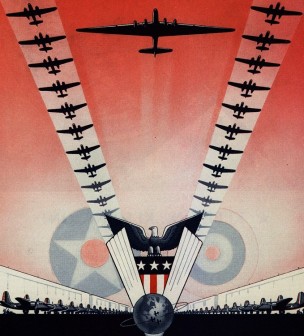Iraq War Redux: Goodbye “Iraqi Freedom”, Hello “New Dawn”
On August 31, 2010, President Obama declared, in his oval office address to the nation, that the United States combat operations in Iraq were officially over. This is obviously an effort by the President to convince Americans, right before the November elections, that he has fulfilled one of his key 2008 campaign promises: To end the Iraq war and bring US troops home.
One cannot, however, help seeing the hypocrisy coming from a man who built his rise and political success over his opposition to the Iraq war. The war in Iraq is not over, but instead has being re-branded by the Obama administration. It is just a smaller war, which is ironically probably what Dick Cheney and Donald Rumsfeld had in mind for Iraq’s future. America’s footprint is still gigantic in Iraq, with 50,000 US troops, countless bases and an embassy bigger than the Vatican.
Some people within the American left were under the illusion that President Obama would and could think outside the box, and bring a peaceful revolution to Washington by breaking from the logic of permanent wars. Instead, President Obama has become a willing victim of a system where no one can truly question the deadly logic of the empire. American Presidents always describe themselves as leaders of the free world, but since World War II, they have merely been CEO of American Empire Inc. The real job of the Commander in Chief is to manage the empire, and in the case of President Obama it is to manage an empire in decline.
Unfortunately, almost nobody within the American establishment and political class can put the logic of endless wars in question. Washington has become a modern version of Kafka’s The Castle, where preserving the system with the Pentagon at the top of the pyramid is the only corner stone. Some voices are coming out, however, from people who used to operate within the establishment.
One of these voices is that of Andrew Bacevich: a retired US Army Colonel and currently a professor of history and international relations at Boston University. In his new book, Washington Rules: America’s Path to Permanent War, Bacevich puts Washington under a harsh spotlight and denounces America’s misguided military and foreign policies since World War II.
In an interview with Market Place’s Kai Ryssdal in September 1 concerning the cost of the Iraq war cost, Bacevich, when asked by Ryssdal if there is a way to know how much the wars in Iraq and Afghanistan have cost the United States said:
“I think we will never know. And we will never know, because the people in Washington don’t want us to know. If indeed, we could tally up the actual dollar cost, I think they would end up being so large that there would be a great hew-and-cry from the people. That will be one number that I think will tend to be very elusive.”
And further in the interview.
“The unwillingness to demand anything like strict accountability has become a deeply ingrained habit in Washington DC, and it is a habit that neither Democrats nor Republicans are willing to challenge,” said Bacevich.
In his courageous and remarkable book, Andrew Bacevich takes apart the symbiotic and dysfunctional relationship between Washington DC, Wall Street and the Pentagon. The book contests conventional wisdom in its most influential and enduring form.
“Namely the package of assumptions, habits and precepts that have defined the tradition of statecraft, to which the United States has adhered since the end of World War II- the era of dominance now drawing to a close. By the midpoint of the 20TH century, the Pentagon had become Leviathan, its actions veiled in secrecy, its reach extending around the world. Yet while the concentration of power in Wall Street had once evoked deep fear and suspicions, Americans by and large saw the concentration of power in the Pentagon as benign. Most found it reassuring,” wrote Bacevich in his book.
To read excerpts from Andrew Bacevich’s book click here.
Related Articles















You must be logged in to post a comment Login